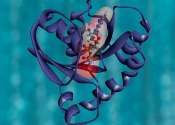New detergents for drug research
Researchers at TU Dortmund University and Freie Universität Berlin have developed a process for producing new detergents for drug research. The purpose of the new detergents is to separate sensitive proteins from biomembranes ...









